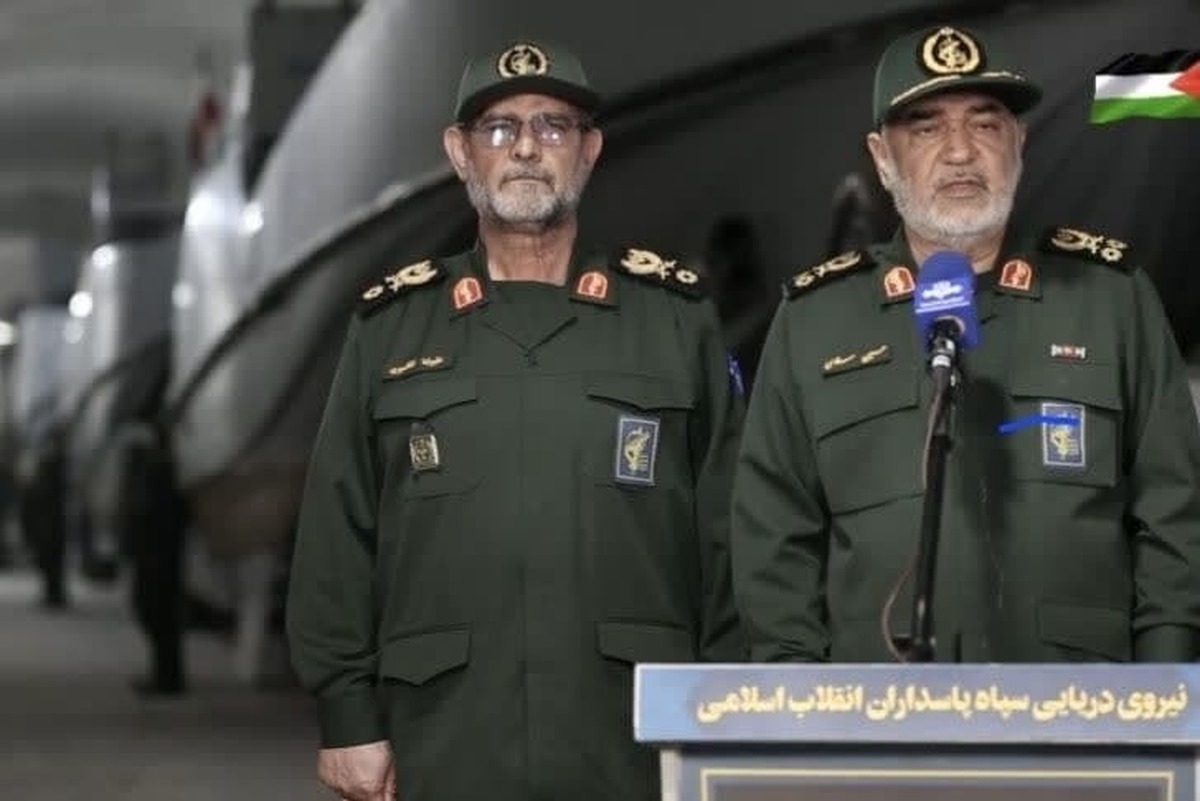‘Americans call them red wasps:’ Iran reveals underground base housing fast attack craft

The facility was officially unveiled on Saturday by IRGC Commander-in-Chief Major General Hossein Salami and IRGC Navy Chief Rear Admiral Alireza Tangsiri, during a television broadcast that also featured glimpses of the site.
During the unveiling, Navy Chief Tangsiri highlighted the facility's strategic capabilities, stating, "This underground city has the capability for immediate operations at sea."
Describing the agility and lethality of the naval forces, Tangsiri said, "The Americans themselves call these Iranian boats 'red wasps.' The sting of these wasps is deadly."
He further explained that the Iranian-made vessels are radar-evading and can launch missiles at targets with "very, very high speed". He emphasized that these advancements were accomplished in the face of anti-Iran sanctions.
‘Only a fraction of Iran’s might’
Additionally, Major General Salami highlighted that the unveiled vessels and missile systems enhance the combat effectiveness of various homegrown crafts currently patrolling the Persian Gulf to safeguard Iran’s sovereignty and maritime boundaries.
“This represents only a fraction of the Navy’s extensive capabilities,’ the IRGC chief said adding that the Navy is continually advancing its combat readiness and defensive strategies.
Salami also expressed confidence in the progress made by the IRGC Navy in recent years, both in terms of the quantity and quality of offensive systems. He detailed improvements in the operational range and speed of the vessels, as well as the range, accuracy, and destructive power of their missiles.
The IRGC Navy is now equipped to conduct warfare from both close and distant ranges and can strategically manage multiple layers of defense, the commander declared.
The underground base revealed Sunday night was the IRGC's second such facility unveiled this month, following last week’s unveiling of an advanced underground missile base known as a "missile city." While much of that base still remains undisclosed, video footage displayed a range of liquid-fueled, high-tech missiles, including Emad, Qadr, and Qiam models.
The construction of underground complexes is a cornerstone of Iran’s defense posture. These facilities provide protection for military assets against aerial threats, while simultaneously enabling a swift retaliatory response. The strategy is also believed to act as a deterrent to potential aggressors and significantly complicates any adversary's operational planning should they consider an attack.
A look at Iran's maritime vanguards
Iran's naval forces, consisting of the IRGC Navy and the Iranian [Artesh] Navy, have achieved significant advancements in recent decades. The synergistic relationship between these two branches creates a robust, layered defense system.
Initially focused on coastal defense following the Islamic Revolution, the IRGC Navy has transformed into a formidable force specializing in asymmetric warfare. This transformation is evident in its fleet of agile speedboats and the advanced Shahid Soleimani class stealth missile corvettes.
In contrast, the Iranian Navy (part of the Iranian Army or Artesh) has been expanding its blue-water capabilities to protect interests in the Gulf of Oman, the Caspian Sea, and beyond.
The Iranian Navy owns a modernized fleet that features new missile and electronic systems – systems the nation has built despite the burden of heavy Western sanctions.
The Navy's global maritime ambitions were highlighted by the 86th flotilla's world circumnavigation in May 2024, covering 63,000 kilometers and crossing the equator four times.
Plans for a permanent base in Antarctica, announced by Navy Commander Rear Admiral Shahram Irani, further demonstrate Iran's expanding maritime ambitions.
While the Iranian Navy maintains conventional naval power, the IRGC Navy provides agile, innovative support. This combination ensures comprehensive protection of Iran's maritime interests and economic security in a volatile regional environment.